Salvage crews have removed more than 23,000 litres of diesel from a sunken tug on British Columbia's central coast, but a local First Nation said Tuesday that the damage has already been done and a lawsuit could be on its way.
More than 60 per cent of the Heiltsuk First Nation's clam beds were poisoned after a tug and barge unit ran aground in the Seaforth Channel last Thursday, leaving many members of the remote community without an income-earning activity for the upcoming season. Fisheries and Oceans Canada has shut down shellfish harvesting in the region due to pollution, and Chief Marilyn Slett said her community may very well seek compensation from the American company responsible for the disaster and the Government of Canada as well.
Clam harvesting was scheduled to begin in roughly three weeks, she added, and typically rakes in roughly $150,000 in annual income for the small First Nation in Bella Bella, B.C.
"That’s what we’re literally anguishing over right now," she told National Observer. "What are we going to do? These are people who depended on the harvest for their winter economy. We expect we’ll sit down with some other government agencies to start having these (legal and financial) discussions."
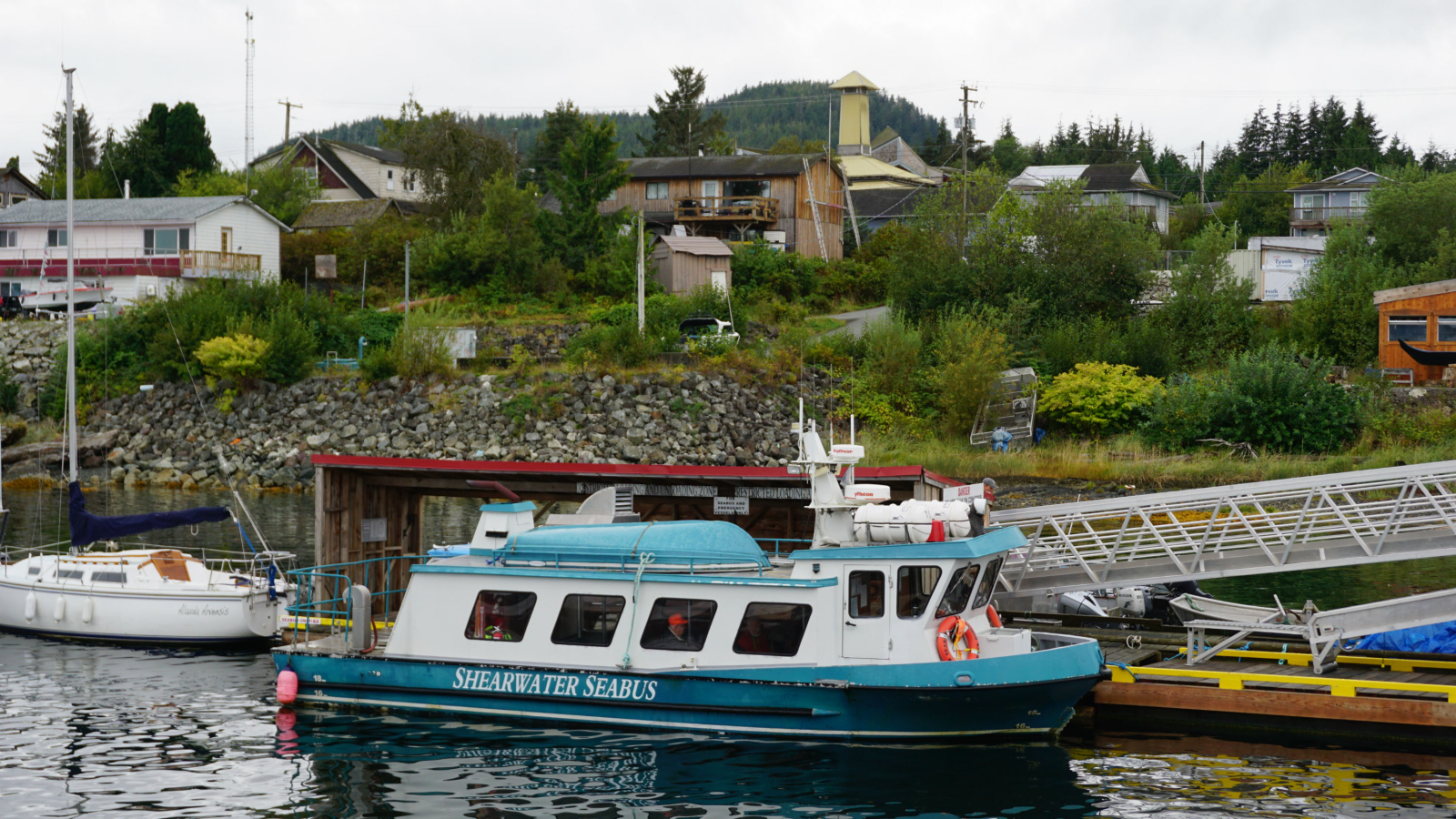
"Bread basket" region ruined by spill
Late last week, a 10,000-tonne tanker and barge unit belonging to the Texas-based Kirby Corp. ran aground in the remote and stunning Great Bear Rainforest, spilling an unknown quantity of diesel fuel into the area's pristine waters.
First responders, including Kirby, the Canadian Coast Guard, RCMP, and Transport Canada reported Monday that some of the fuel had already flowed past containment efforts into nearby Gale Passage. On Tuesday, it was confirmed that the pumps removing diesel from the tug failed due to water in the engine, hampering the day's efforts to avert an environmental disaster in the vulnerable coastal ecosystem. A skimming vessel arrived on the scene yesterday, no oiled wildlife has been spotted to date, and fuel removal will continue overnight.
The Heiltsuk First Nation, whose home in Bella Bella is roughly 20 kilometres west of the accident, has already depleted many of its resources responding to the accident. The loss of the clam beds is just the first impact on what Chief Slett described as the "bread basket" for the community, which is also an important harvesting site for kelp, spawning herring and salmon.
"Ultimately, we’re bearing the risk and the aftermath," she said. "We’ve worked so hard to make sure that the landscape and marine integrity is kept intact, and then this happens… this should not have happened."
The First Nation has set up a crowdfunding campaign to support its own first responders, who have "been on scene from dawn to dusk every day to lay booms and assist with cleanup efforts," according to the FundRazr page. Many of those on scene are elderly men and hereditary chiefs, Chief Slett added, who have used their own boats, spent money to fuel them, and given up community space to house visitors and an incident command centre.
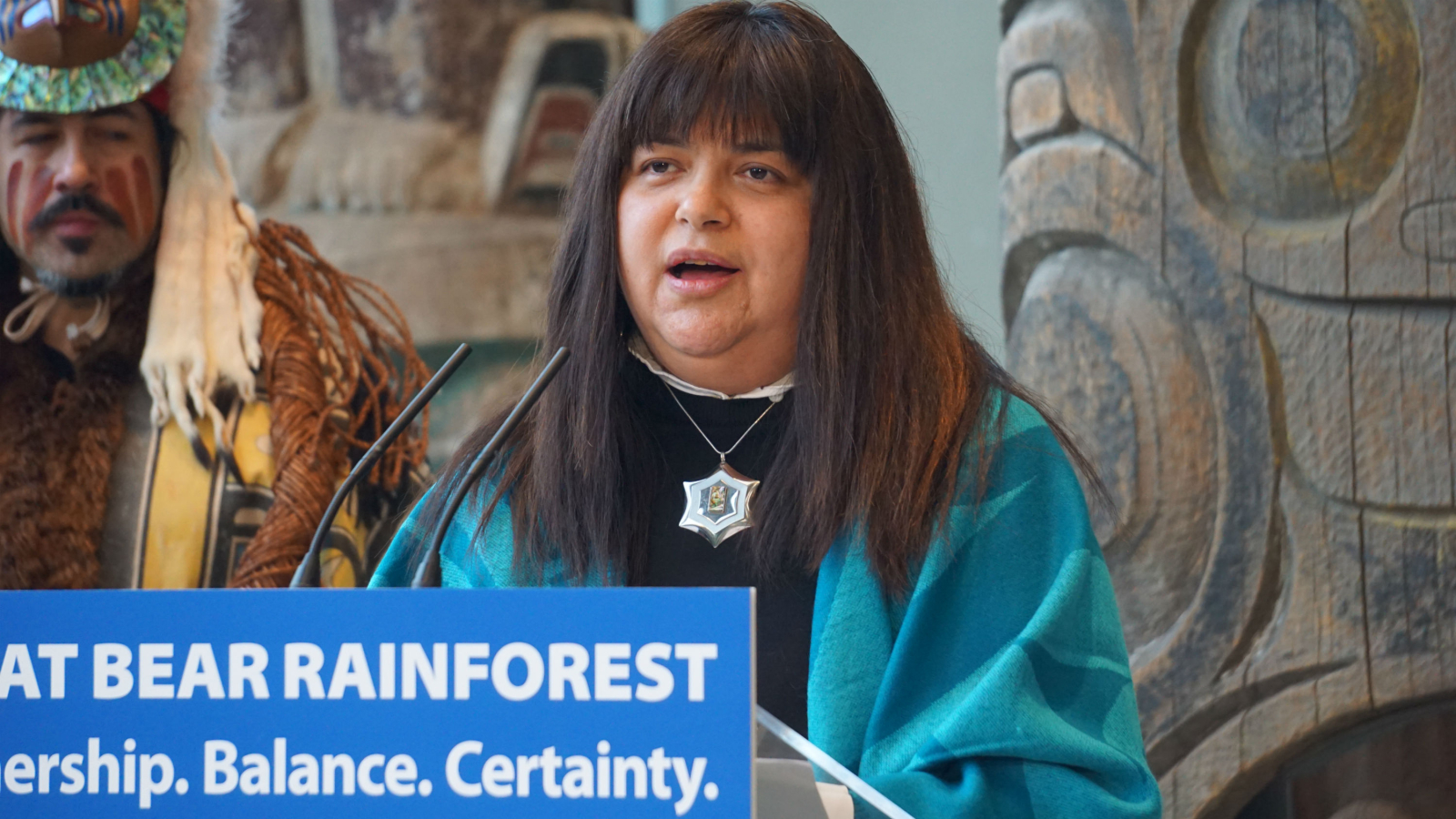
Mounting pressure on Transport Canada
The entire incident has increased pressure on the federal government to implement its promised crude oil tanker ban for B.C.'s northern coast, and on Tuesday, the Green Party of Canada joined the federal NDP, the Heiltsuk, and Coastal First Nations in calling on Transport Minister Marc Garneau for immediate action.
"Minister Garneau needs to act now, listen to the pleas of the Heiltsuk First Nation, and ban U.S. tankers and tug-barge traffic from passing through this sensitive marine environment,” said Green Party international trade critic Paul Manly in a Tuesday press release.
"The response from Mr. Garneau has been only in word, that we’ve seen very little on the ground and that the devastation, the impact for the Heiltsuk people, for the west coast environment is significant and prolonged," added NDP MP Nathan Cullen outside the House of Commons.
"It’s been almost a year now we’re waiting on the federal Liberals to bring in their tanker ban of some kind, yet we have nothing other than empty words, and people on the coast are being devastated by this – this spill right now."
Last Friday, a story in the Vancouver Sun revealed that the same tug that spilled in the Great Bear Rainforest, the Nathan E. Stewart, had been adrift in Alaskan waters carrying more than 2 million gallons of diesel fuel in 2011, and had been making weekly trips using a waiver from the Pacific Pilotage Authority that exempted it from a requirement to have Canadian pilots on board.
Transport Canada has since revoked this exemption for all vessels operated by Kirby but has remained quiet on the timeline of its promised tanker ban, even as it assures the public that it is taking the situation "very seriously."
"We are cooperating with the Transportation Safety Board and I have appointed a Minister's Observer who will keep me informed of their progress so that my department can be ready to take quick action should any early findings be identified to improve safety," said Garneau in a press release on Tuesday. "I want to thank the first responders, the Bella Bella Community and the Heiltsuk Nation who acted quickly to minimize the damages caused by this incident, as their efforts certainly made a difference."
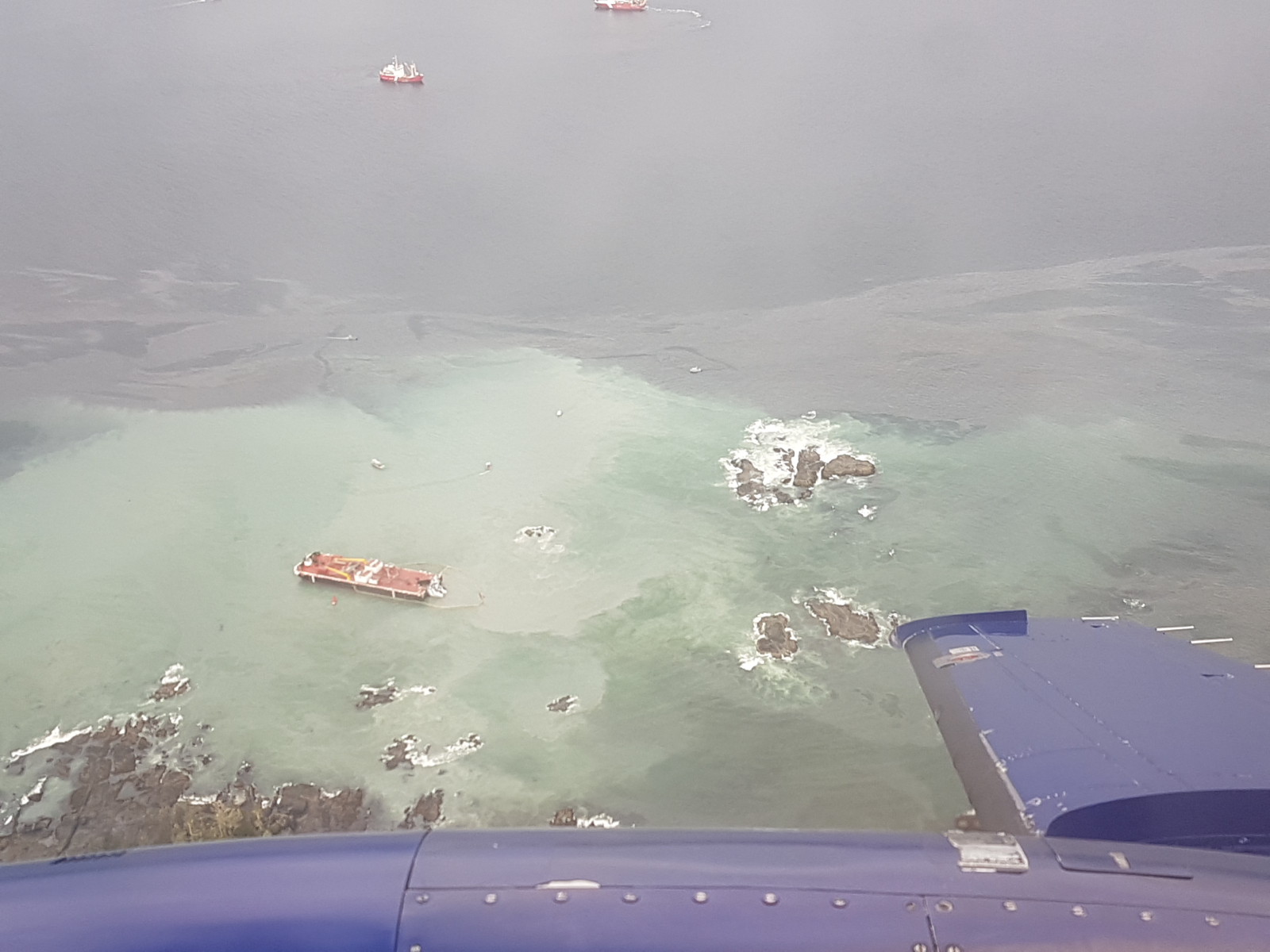
Heiltsuk waiting to interview Kirby crew
The Heiltsuk First Nation remains skeptical, said Chief Slett. Despite its contributions to clean up, its collaboration with government agencies, and rights and title in the region, it has not yet had the opportunity to interview the seven-member crew of the tug that ran aground, while this same opportunity has been granted to the Transportation Safety Board of Canada.
When National Observer raised the issue, the TSB denied involvement in this delay, as did an official from Transport Canada. A spokesperson for Kirby however, said that now that the crew has completed all interviews required by regulators it will choose individually whether or not to participate in interviews with the Heiltsuk.
"That’s news to us, because we have been corresponding with (Transport Canada and Kirby)," said Slett. "We’ve been feeling like we have this disaster happening in our backyard and we had an oil spill response that was inadequate, and that’s putting it lightly."
The latest joint situation report from Kirby says diesel was being transferred from the ship at a rate of about 500 litres per minute with the entire operation expected to conclude sometime Wednesday morning. Once the fuel is removed, Kirby hopes to use a crane to lift it from the water and barge it out of the area.
Kelly Russ, board chairman of Coastal First Nations (CFN), who has supported the Heiltsuk during meetings with outside first responders, said the entire incident was "catastrophic," and a "pin drop" compared to what could happen if a crude oil tanker were to crash in the Great Bear Rainforest. It's proof that the Trudeau government's promised tanker ban is necessary, he told National Observer, and proof that First Nations must be meaningfully included in the development of shipping strategy for B.C.'s waters.
"What struck me when I sat in the room, was that you’d have all these people presenting information (to) Heiltsuk — and this is not a criticism of Heiltsuk — it’s just the power imbalance and (their) capacity to respond to the event," he explained. "This diesel spill just crystallizes our worst fears with respect to fossil fuels being transported.
“It seems from our perspective at CFN, if we’re approaching reconciliation on a nation-to-nation basis, then it can’t simply be a souped up stakeholder position for First Nations, it can’t be stakeholder plus. We should be past stakeholder status.”
— with files from Canadian Press
Editor's Note: The photo caption for the top image of this story was corrected at 9:42 a.m. Pacific Time on Thurs. Oct. 20. A previous version stated that the Coast Guard members in the photo were cleaning up the spill. It was later clarified that they were part of the response effort, but not the clean up.
When one looks at the aerial
When one looks at the aerial view one immediately realizes that the tug and barge had no business being anywhere near there. None of the crew could have been paying any attention to where they were going.
From what I understand,
From what I understand, Canada and British Columbia should pursue legal action against Kirby for current and future losses resulting from this diesel spill. Kirby is 100% responsible for the losses incurred by Heitsuluk First Nation. And Canada, as a supporter of UNDRIP, must support First Nations and the damages against them. Otherwise Canada is a felon.
Not much coverage of this in
Not much coverage of this in the rest of the media, is there?
Thanks Elizabeth for your
Thanks Elizabeth for your analysis. I am deeply sorrowed by this tragic event. We must ensure that the "promised" moratorium on tankers is honoured. Petronas is not welcome in Canada. And neither is Kirby. If you can't, or won't, clean it up, you are not welcome in Canada.

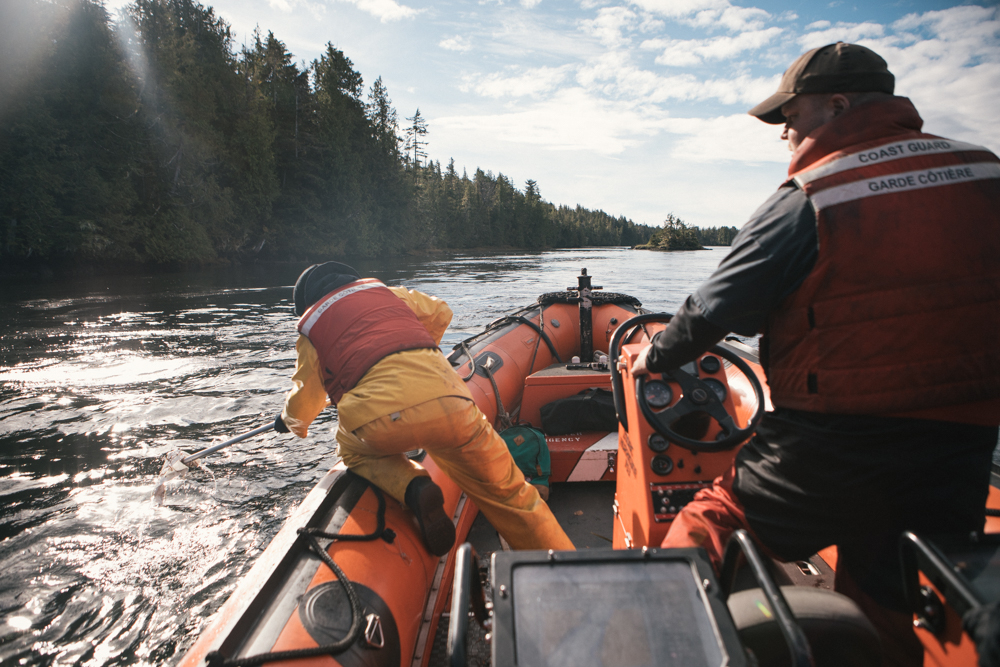

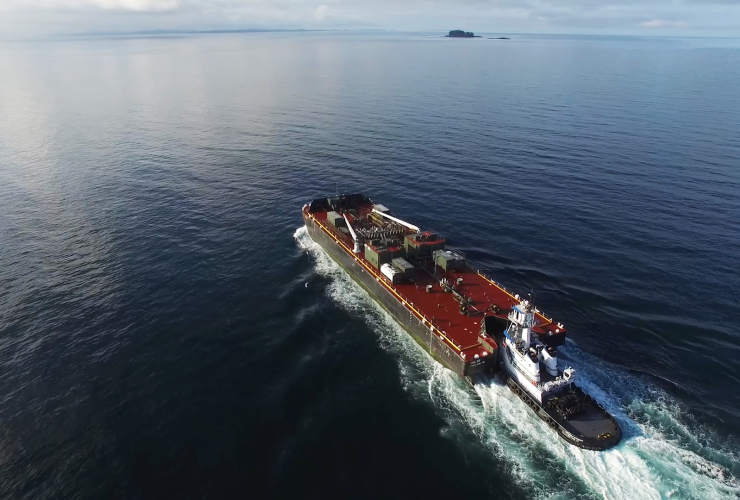

Comments